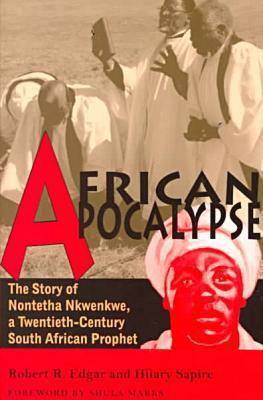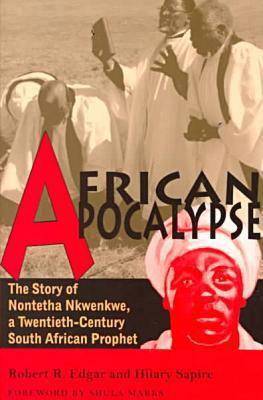
- Afhalen na 1 uur in een winkel met voorraad
- Gratis thuislevering in België vanaf € 30
- Ruim aanbod met 7 miljoen producten
- Afhalen na 1 uur in een winkel met voorraad
- Gratis thuislevering in België vanaf € 30
- Ruim aanbod met 7 miljoen producten
Zoeken
African Apocalypse
The Story of Nontetha Nkwenkwe, a Twentieth-Century South African Prophet Volume 72
Robert R Edgar, Hilary Sapire
€ 34,95
+ 69 punten
Omschrijving
The devastating influenza epidemic of 1918 ripped through southern Africa. In its aftermath, revivalist and millenarian movements sprouted. Prophets appeared bearing messages of resistance, redemption, and renewal. African Apocalypse: The Story of Nontetha Nkwenkwe, A Twentieth-Century Prophet is the remarkable story of one such prophet, a middle-aged Xhosa woman named Nontetha. After surviving the deadly virus, Nontetha proclaimed that a series of dreams revealed to her that the influenza had been a punishment from God. Consequently, she embarked on a mission to reform her society. She imposed numerous prohibitions and rules on her followers. In a parallel movement, in 1919, millenarian Israelites congregated in the holy village of Ntabelanga, 100 miles north of Nontetha's area, to await the end of the world. In May 1921, police killed nearly 200 Israelites near Queenstown in a showdown over attempts to expel the settlers. Accused of sedition by an alarmed government, Nontetha was committed to Fort Beaufort Mental Hospital in 1922. On Nontetha's death in 1935, officials buried her in an unmarked pauper's grave. In 1997, Edgar and Sapire located Nontetha's grave. Of Edgar's efforts to return Nontetha to her home, the New York Times said, "One would not expect, perhaps, that a mild-mannered professor from Howard University would turn out to be the Indiana Jones of South Africa." African Apocalypse touches on a variety of themes, including African Christianity, gender, protest, the social history of madness, and the engagement of professional historians in contemporary issues.
Specificaties
Betrokkenen
- Auteur(s):
- Uitgeverij:
Inhoud
- Aantal bladzijden:
- 213
- Taal:
- Engels
- Reeks:
- Reeksnummer:
- nr. 72
Eigenschappen
- Productcode (EAN):
- 9780896802087
- Verschijningsdatum:
- 1/12/1999
- Uitvoering:
- Paperback
- Formaat:
- Trade paperback (VS)
- Afmetingen:
- 140 mm x 211 mm
- Gewicht:
- 272 g

Alleen bij Standaard Boekhandel
+ 69 punten op je klantenkaart van Standaard Boekhandel
Beoordelingen
We publiceren alleen reviews die voldoen aan de voorwaarden voor reviews. Bekijk onze voorwaarden voor reviews.











